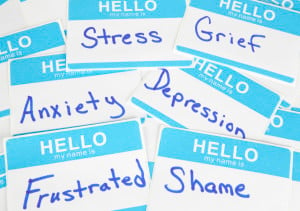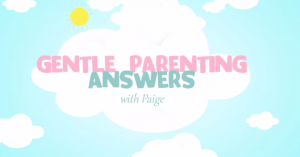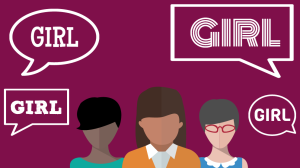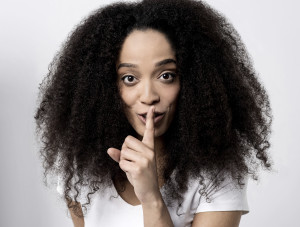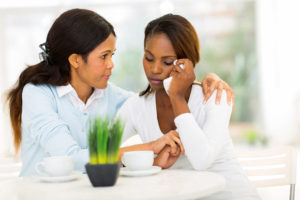
A person has their arm around another person, who appears to be crying, while one person comforts the other.
(Content Note: intimate partner violence)
We’ve all been there – you’ve got a friend who breaks up and gets back together with a partner that you think is not quite right for them.
It’s one thing to be annoyed because their on-and-off-again boo is a terrible trivia partner when you all get together for board games – but it’s an entirely different level of concern if you know or suspect that your friend’s partner is abusive.
So what do you do if a friend gets back into a relationship with an abusive partner?
You’re probably going through a rollercoaster of emotions. You were relieved when your friend seemed to escape their abuser, but now you’re worried about their safety all over again.
You might even be frustrated with your friend for not staying away from someone who treats them so terribly – not to mention furious with the abuser who’s hurting someone you care about. These feelings make sense. And you need to figure out what to do with them – both to heal your own pain and to support your friend’s safety.
I’ve been in your friend’s position before. I was with an abusive boyfriend, and I agreed to get back together with him more times than I can remember.
Sometimes I wonder what my friends thought when that happened. But I understand now that they were probably pretty baffled about how to support me. I was the one in my relationship, and even I was baffled about it – about why my ex-boyfriend treated me the way he did, about why I couldn’t seem to escape his control over my life.
Since then, I’ve learned a lot about how intimate partner violence works, including by doing healing support and advocacy for other survivors. I’ve met lots of survivors who have gotten back together with abusive partners, too.
And I’ve learned that there’s sometimes a difference between the way I’d want to respond to a survivor reuniting with an abusive partner and the most supportive way to respond.
There might be a difference there for you, too. So before you take action, let’s take a pause to consider the options for the most effective response.
These strategies can help you support your friend’s safety, and take care of yourself in the process.
1. Learn About Intimate Partner Violence
It makes sense that you don’t know what to do about abuse if you don’t know how abuse works – and many of us don’t. And you might get discouraged if you hope to instantly whisk your friend away from danger.
So do some research through domestic violence organizations. You’ll be better prepared to support your friend, and you can manage your expectations for what’s possible.
You’ll learn about different forms of intimate partner violence, like emotional, physical, sexual, and financial abuse. And about why survivors stay with or go back to their abusive partners, including how abusers maintain control over survivors’ lives.
You can also learn how many attempts it takes to break free from an abusive partner (an average of 7-13), and about how leaving an abusive partner can be the most dangerous time for a survivor.
If this information’s new to you, it’s probably changing your perspective on your friend’s situation already. And that’s great – you can use your increasing knowledge to figure out how best to support them.
Rather than aiming to rescue your friend, focus on supporting them through the emotional toll of the abuse they’re experiencing, and helping them stay as safe as possible.
With these goals, you don’t have to feel helpless, because you’re not aiming for something that’s outside of your control. And you can focus on what your friend needs, not on what you think is best.
2. Call Your Local Domestic Violence Program
Through your own research, you can learn a lot about the patterns of how intimate partner violence tends to show up.
But of course, your friend has their own individual needs that a general overview can’t address. And you might have questions that can only be answered by someone who knows the specifics of the situation.
Fortunately, there are free and confidential services available that can help. Call the National Domestic Violence Hotline or connect with a domestic violence program in your area to talk to someone about what’s going on and to make a plan for what to do about it.
You can get tips for how to talk to your friend about abuse, as well as resources to help them.
3. Tell Your Friend You’re Worried About Them (Without Judgment)
It can feel hard to bring up the abuse, but this conversation is important because it lets your friend know that they don’t have to go through this alone – they can talk to you instead of keeping it a secret.
Even if they’re not ready to talk about it, or they don’t want to admit they’re being abused, you can let them know that you’re there for them whenever they’re ready to talk.
Getting back together with an abusive partner is a vulnerable time. Your friend might feel like they have to stay with their partner and prove to everyone else that everything’s okay.
They might feel more isolated than ever before, scared that you’ll think they “put themselves in that situation,” so they must be lying about being abused – or that they deserve abuse if they stay.
That’s why it helps to focus on your concern for your friend, not judgment for their relationship.
Instead of insisting that they have to leave their partner, try saying something like, “I heard your partner threatening you, and I worried about your safety. Is there anything I can do to help?”
Perhaps even more important than talking to your friend is listening to them. It’ll be a huge relief for them to realize that you’re just there to listen, not to judge them or push them into any big decisions.
4. Support Your Friend’s Right to Make Their Own Decisions
Validating your friend’s right to make their own choices can be really tough when their choices seem to put them in danger – but this form of support is crucial.
Intimate partner violence is a pattern of power and control. That means that getting back together with an abusive partner isn’t as simple as making a “bad” decision.
In my case, my ex-boyfriend’s emotional abuse eroded my sense of self-worth and my confidence in my ability to make my own decisions. His physical abuse made me afraid of what he might do if I tried to leave him for good.
I felt like I didn’t have any control over my own life – like I had to do what he wanted me to do. Your friend might feel the same, and they might be back with their partner for any number of reasons: financial dependence, fear, love, and more.
One of the best ways you can support your friend is by helping empower them to take back control of their life. You can say, “You know what’s best for yourself. I’m worried about you, but I’m not judging you, no matter what you do.”
Don’t make the mistake of thinking you know what your friend should do better than they do.
For instance, you might think your friend needs to make a police report. But what if you don’t know that they’ve tried before, and the police only made things worse – or their partner retaliated against them?
Or that as a person of color or an undocumented immigrant, your friend could be in even more danger if the criminal justice system gets involved?
Not sure if you’ll be able to hold back from making decisions on your friend’s behalf? Here’s one thing that might help: Make a safety plan with them.
A safety plan includes practical options for when your friend needs help. Creating it with them will help ensure that you can support them without having a negative impact.
Check out these resources to learn how to make a safety plan.
5. Offer Options for Small Steps
I know what you might be thinking: Why would you choose small steps over drastic measures when it comes to protecting your friend’s safety?
Getting your friend from being in a relationship with an abusive partner to being completely free is the ideal situation, of course. But your friend might have a hard even imagining such a thing right now, when they’ve only just reunited with their partner.
They might feel overwhelmed if they think their only option is to do something drastic, like moving to a domestic violence shelter or having their partner arrested.
Instead, consider how taking one small step at a time could make a big difference. For instance, if you share the phone number of a domestic violence hotline or a local program, say, “You can just talk to a counselor about what’s going on – calling doesn’t mean you have to leave your partner or make any big decisions right now.”
That way, it feels doable for them to take that initial step of talking about the abuse, even if they’re not ready to do anything more than that right now.
Another resource you can share is this article on keeping yourself safe when you’re not ready to leave your abusive partner. Hopefully, it can help them find ways to protect themselves right now.
6. Help Them Find Support Specific to Their Needs
To you as an outsider, it might seem easy for your friend to find support – just call one of the many available numbers, and they’ll get all the support they need, right?
Unfortunately, that might not be the case. And it could be difficult for your friend to figure out what to do when the resources available don’t support their needs.
For example, if your friend is a man and their local DV or IPV programs serve primarily women, language that assumes men are always abusers (and never survivors) might just add to their shame.
Or if your friend is queer, disabled, transgender, a person of color, or otherwise marginalized, they might not get the support they need from organizations that focus mostly on straight, able-bodied, cisgender, white women, and forget that everyone else exists.
This is a sad situation, and of course, the ultimate solution is to advocate for intersectional, culturally competent services for all survivors. But in the meantime, try to find services specifically for people of your friend’s identity, if they’re available. They may be surprised to learn about such services – and you’ll give them some hope that help is possible, even for them.
I’ll list some more services that might help at the end of this article.
7. Take Care of Yourself
So far, these strategies have all been about supporting your friend – which is, of course, an important priority.
But it’s also important for you to prioritize taking care of yourself. For people supporting survivors of violence, vicarious trauma is a real risk.
That means that even if you’re not directly experiencing the violence in your friend’s relationship, you can be affected by it. The impact can be especially difficult at a time like this, when you’ve tried to protect your friend, but now they’re back with their abusive partner.
It’s okay to set aside time to for your own self-care. It’s even okay to set boundaries with your friend.
That can be tough, so here’s another reminder that managing your expectations is a crucial part of supporting a friend who’s being abused. You may not be able to rescue them altogether, or to be there for them every single time they need support.
But here’s what you can do: You can take care of yourself enough to make sure you’re able to do the best you can for your friend. You can make a list of what you can do for them – and what’s beyond your capacity. You can stick to the list of what you’re able to do, instead of trying to stretch yourself beyond that.
And you can believe me when I say that you don’t have to sacrifice your own wellbeing in order to support your friend.
***
As hard as it is to leave an abusive partner, I already have hope for your friend. And that’s because of the fact that you’re reading this and looking for ways to support them.
In this world of blaming and shaming survivors, a non-judgmental support system can make a world of difference for your friend. You can be a positive force in your friend’s life to help them know that it’s possible to be safe from violence.
Here are some resources that can help:
- The National Domestic Violence Hotline
- The National Coalition of Anti-Violence Programs for LGBTQIA+ Survivors
- FORGE for Transgender and Gender Non-Conforming Survivors
[do_widget id=’text-101′]
Maisha Z. Johnson is the Digital Content Associate and Staff Writer of Everyday Feminism. You can find her writing at the intersections and shamelessly indulging in her obsession with pop culture around the web. Maisha’s past work includes Community United Against Violence (CUAV), the nation’s oldest LGBTQ anti-violence organization, and Fired Up!, a program of California Coalition for Women Prisoners. Through her own project, Inkblot Arts, Maisha taps into the creative arts and digital media to amplify the voices of those often silenced. Like her on Facebook or follow her on Twitter @mzjwords.
Search our 3000+ articles!
Read our articles about:
Our online racial justice training
Used by hundreds of universities, non-profits, and businesses.
Click to learn more










